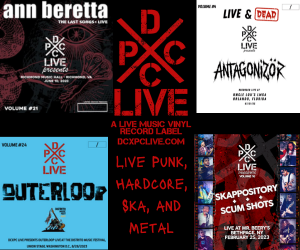The Formative Years - Kill Rock Stars
It would have been around 1992 that I first came about a new label that seemed to have its focus firmly set on releasing its friends’ records and the underground scene centred around Olympia, Washington. It did not take long for the label, its credo and overall outlook and aesthetic to manifest via having a tangible impact on underground music at large.
If you e.g. look at their compilation Kill Rock Stars, it gives you an indication of how much of a trailblazer the label was, featuring bands like Bikini Kill, Bratmobile, Unwound, Nirvana, Mecca Normal, Heavens to Betsy, The Nation of Ulysses, and the Melvins as early as 1991.
The compilation not only had tender singer-songwriters on it but partly captured the spirit of what the genre “grunge” was to become yet was deliberately antithetical to it.
The fact that the covers were hand-made and the overall approach informed by a stern DIY ethic only added to the appeal.
Never limited to particular musical styles, Kill Rock Stars exposed me to beatnik punk, thoughtful and moody spoken word releases, Elliott Smith’s pained and gritty first full length, acts like the fantastic Mary Lou Lord and bands like Sleater Kinney.
My infatuation with KRS lasted only for three to four years up until around 1995 when most of the key bands on the label’s roster split up, but it left an indelible mark in how my interest in literate, polemic women fronted underground music and its meaningful tenets has been shaped.
With its underlying intellectuality, political mindedness, willingness to experiment and sensitivity, it was a door opener for many voices and served as a platform that occupies a unique position in the label landscape to this day with releases that thirty years on still reverberate with the same vibrancy and vigour.
